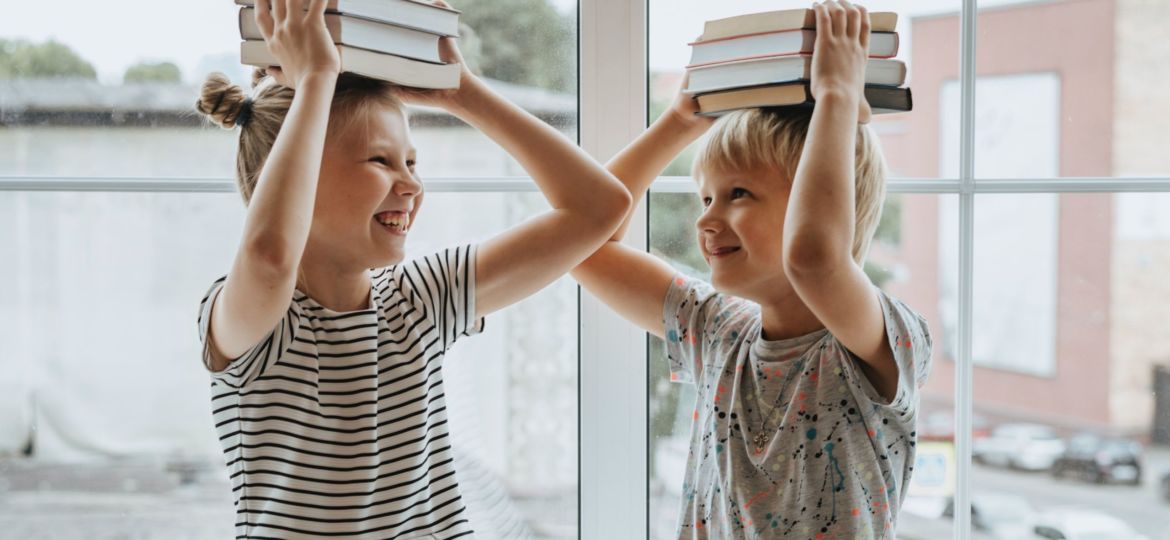
A new school year comes with a lot of changes. For starters, it can be intimidating for your child to meet new classmates, new teachers, and get accustomed to a new classroom (or maybe even a new school altogether). On top of that, COVID-19 has impacted the way your kiddo’s education is delivered, and they may be going back to school in person for the first time in over a year! After school activities are resuming as well, so they may be nervous to jump back into the sport they previously played before the pandemic.
It’s important to note that relaxation goes hand-in-hand with having fun. They key components of having fun are feeling comfortable, present, and confidence in their success, which can all be increased through relaxation techniques.
So, the first important relaxation technique is to practice being present. To begin, have your child plant their feet firmly on the ground. Prompt your child to let go of thoughts of the past or future by focusing only on what is currently happening around them. Call their attention to what they are currently experiencing in their five senses, and to notice how those sensations feel in their body. Here are some questions you can ask your child to help them focus on their senses:
- What do they see? They can simply label their surroundings, or search for a specific quality in the objects in the room. For example, how many objects in the room are their favorite color? Or how many circular shapes do they see near them?
- What can they hear? How many distinct noises can they hear? Are there noises they didn’t notice before, like the hum of the air conditioning unit or a bird chirping lightly outside?
- What do they smell? Maybe they can smell the fresh air, food being cooked down the hallway, or a cleaning product recently used.
- What do they taste? Have they eaten anything recently that is still lingering in their mouth, or have they forgotten to brush their teeth that morning?
- What can they feel? Call their awareness to the surfaces they are touching at the moment, like the chair they are sitting in. What does that feel like – soft, smooth, rough, or hard? What do their clothes feel like as they hang on their body?
A second relaxation technique you can practice with them is focusing on breathing in a deep, slow, and intentional way. You can encourage them to take long and slow breaths that fill their lungs to the top with air, and then empty them completely. Ask them to think about the way it feels in their body to breathe like that – How does it feel when the air enters their nose and moves down their throat to their lungs? What does it feel like when their chest expands and contracts with each breath? Controlling their breathing in this way will not only help your child calm their nerves, but will also help them remain present so they can enjoy themselves more. Remind them to stay in the moment, with that breath.
Next, practice visualizing success with your child. This means imagining what it would look like to achieve their goal or handle the situation well. You can do this with them before dropping them off at school, before practice, or before bed. Ask them to picture specific details about their situation, such as the feel of the grass, and imagine the best outcome. The more details in this mental image, the better! Athletes often visualize themselves hitting a perfect free-throw or kicking the ball perfectly into the net, and many of them swear by its effectiveness. Your child can use this technique to succeed in their after school activities, as well as successfully interacting with peers or calming their emotions. When they have seen in their minds that they can do this, they believe in themselves more! This naturally decreases worry and increases confidence.
Additionally, children are much more confident and comfortable when they can say, “I’ve done this before” or “I know this”. So, practicing these relaxation skills outside of stressful environments builds their confidence in these skills and makes them more effective when stressors arise. With a few of these tools in their toolbelt, your child will feel more prepared to jump back into school and their activities.
If you feel that your child is unable to manage their worries on their own or with your support, reach out to Relate for a free phone consultation! In as little as a few sessions, your child can practice these skills and learn more so that they can be as successful as they can be, both in school and in their activities. Contact us at info@relatefamilytherapy.com or (303) 954-9809 if you’d like some extra support with managing feelings, emotions, and behaviors during these transitions and changes.

